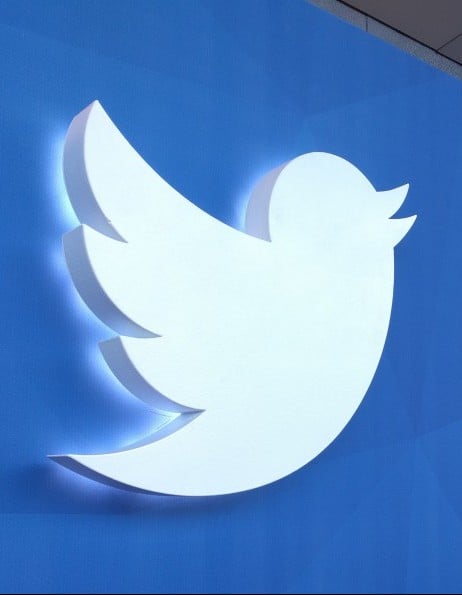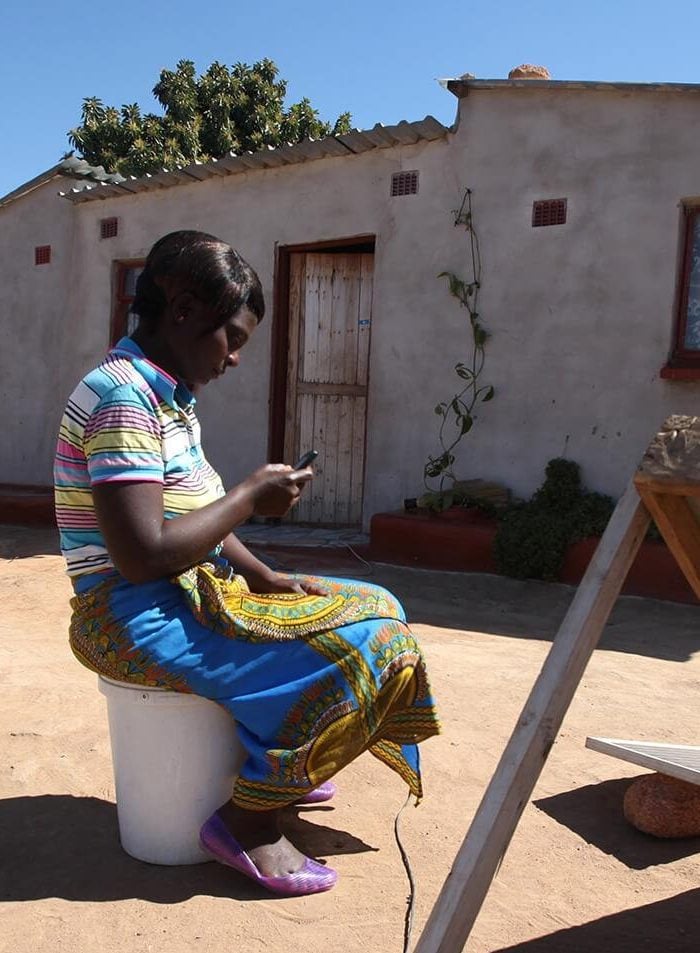Find out the week’s top mobile stories from around the world.
This week.. Twitter posts its first quarterly profit, mobile biometrics set to be game-changer in APAC, mobile health apps may not ensure user privacy, buying an iPhone in India just became even more expensive and much more…

Twitter posts its first quarterly profit as ad sales rise
BBC
Twitter has reported its first quarterly net profit helped by a rise in video advertising sales.
The news sent the price of Twitter shares surging 26% in pre-market trading in New York.
That was despite the number of people using the social network coming in below expectations.
Twitter’s previous failure to make a profit had confounded investors given its widespread use and popularity among celebrities and politicians.
Net profit was $91.1m (£65m) in the fourth quarter of 2017, compared with a loss of $167.1m for the same period a year ago.
In October last year, Twitter had suggested a profit was likely as it sought to cut costs, but both profit and revenue outstripped investors’ expectations.
Read more…
Mobile biometrics set to be game-changer in APAC
Computer Weekly
Mobile biometrics has become more affordable and user friendly in recent years, paving the way for more widespread adoption in digital customer on-boarding, border security and bring-your-own-device (BYOD) initiatives in enterprises.
Indeed, usage of biometrics technology is set to grow in the Asia-Pacific (APAC) region, thanks to higher smartphone penetration rates and the increasing number of transactions on mobile devices equipped with biometrics capabilities.
The technology is also well positioned to complement – and potentially replace – traditional access control methods, such as pins and passwords, security questions and even the use of personal identities.
Read more…
Most mobile health apps do not ensure privacy and security of users’ personal data, study finds
News Medical Net
80% of the health apps evaluated in a European study transmitted health-related data to third-party companies, with only half doing so over secure (HTTPS) connections. Most of the apps did not meet legal requirements or standards meant to prevent users’ inappropriate and uncontrolled data usage and disclosure to third-party companies.
In this innovative study, researchers evaluated 20 popular, free mobile health apps available on Google Play, and looked at how app developers reacted to the findings.
With 100.000 to 10 million downloads each and a minimum rating of 3.5/5, the chosen apps managed, stored and monitored users’ biomedical data such as health conditions, diseases or medical agendas.
Read more…
Revealed: The astonishing amount of 5G data we could be using by 2025
Trusted Reviews
If you’re among those who struggle to make it through the month with a miserly 2GB data allowance, just wait until 5G lands.
UK network Giffgaff estimates that, by 2025, average consumers will be draining their data milkshake at a rate of 100GB/pm (98.34GB to be precise).
The firm points out the average data use was just 1.26 less than two years ago, but says consumption will mushroom when 5G speeds roll out (hopefully) in 2020.
A predicted 3.95GB of average use at the end of the decade will jump to 45.12GB in 2021, it says.
Naturally, the wide availability of 4K video streaming will have the biggest effect. Right now the average user spends 0.83GB of data on video.
Read more…
Why Buying An iPhone In India Just Became Even More Expensive
Forbes
Apple has announced that it will increase the cost of iPhones in India by an additional 3% while also raising the prices of other device parts and accessories. The price hike is the second one since December and is effective immediately the company has announced.
India is already one of the most expensive places in the world to purchase an iPhone. The price of the 256 GB version of the iPhone X, for example, costs $1,650 – $500 more than in the United States. With the latest cost increase, the same device will now cost $1,700 in India. Separately, the price of the Apple Watch has gone up 8%-9% to $520.
The price increase comes just days after the Indian government announced it was increasing import duties on mobile phones and other related accessories to 15% and 20% beginning April 1, a 5%-10% increase from the previous level.
Read more…
China fines payments companies for cross-border forex breaches
Financial Times
China tech groups Alibaba and Tencent have been caught up in Beijing’s war on capital flight, with both being handed fines for breaches of cross-border foreign exchange payments at their financial services units.
The clampdown on overseas payments by affiliates of the two internet giants follows similar tightening of controls at China UnionPay, the state-owned bank-card network that increasingly competes with Visa and MasterCard overseas. Since 2016, UnionPay has sought to limit the use of its cards to pay for investments in foreign property and insurance.
“In the long term, the government supports these payment groups to expand overseas, but at the operational level, they need to strengthen compliance and monitoring,” said Wang Hanyang, fintech analyst at 86Research in Shanghai.
Read more…
Apple Pay Coming to Brazil This Year
Mobile ID World
Apple Pay is coming to Brazil this year, according to Apple CEO Tim Cook. Cook made the revelation during the company’s quarterly earnings call, though he didn’t offer any particulars as to when the platform’s launch in Brazil can be expected.
The country is one of the relatively rare cases in which Samsung Pay, Apple Pay’s friendly mPayments rival, has long beaten Apple’s platform to the market. Samsung Pay went live in Brazil in the summer of 2016, and while there were rumours about Apple Pay coming to the country in that same year, it evidently never materialized.
It’s been a while since Apple Pay found its way into a new market, with the platform having made a big Scandinavian push in Denmark, Finland, and Sweden last October, when it also launched in the UAE. With the Brazil launch now officially pending, there are also rumors that Apple is laying the groundwork for an imminent launch in Poland, too.
Read more…
The Rebel Behind Africa’s Telecom Revolution
Stanford Business
Years ago, trying to convince consumers in Zimbabwe to sign up for his company’s mobile payments service, entrepreneur Strive Masiyiwawas ready to do battle, literally. The founder and executive chairman of privately held telecommunications firm Econet hired actors to stage a street fight, with one accusing the other of stealing his money. Eventually, the actors revealed the marketing message to the crowd of onlookers: Mobile money is safe, “because it’s in my phone.”
During a recent appearance at Stanford Graduate School of Business, Masiyiwa recalled that the mock street fight was aimed at potential customers who didn’t have bank accounts. “We had to persuade them that they could give us their money,” said Masiyiwa, likening the task to enticing people unfamiliar with cola to try a strange new dark-colored beverage. During his November talk at Stanford GSB, presented by the Africa Business Club and the Center for Entrepreneurial Studies, Masiyiwa reflected on the challenges of building a multifaceted telecommunications company in Africa.
Read more…
Consent and security: GDPR in the adtech ecosystem
Marketing Tech
GDPR will come into effect on 25 May 2018, representing the biggest change to data protection across the EU in a decade.
Talking to a lot of advertisers, you could be forgiven for thinking that the sky is falling. But there’s a light at the end of the tunnel, and the change does represent significant opportunities for companies smart enough to take them.
Tiffany Morris is General Counsel & Vice President of Global Privacy at Lotame, and has been having 3 – 5 GDPR-related calls a week with her clients over the last few months. Lotame has two parts to its business, both of which are going to be heavily affected by the incoming regulations.
Read more…
WhatsApp starts digital payment tests in India
Engadget
WhatsApp has finally started testing the digital payments feature it’s been working on since early 2017. The Facebook-owned chat app is currently giving a limited number of users in India the chance to give its built-in payments feature a spin.
Based on the screenshots shared by UI designer Nagender Rao Savanth, testers will have to verify their phone number via SMS to be able to use the government-backed Unified Payments Interface within the app. They can then choose among the pretty large list of banks available, including the State Bank of India, HDFC Bank, and ICICI Bank, which are some of the biggest in the country.
Local Indian media reported last year that WhatsApp’s payments feature will debut in the country, and it wasn’t hard to believe even without a confirmation from Facebook. India has the largest number of WhatsApp users, with around 200 million people using it daily, according to TechCrunch. Facebook and WhatsApp will definitely announce the feature when it goes live for everyone.














